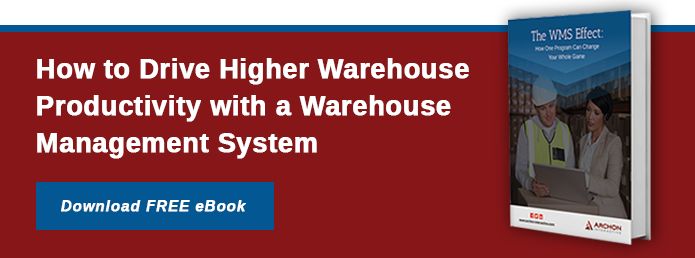 If the time has come to implement a new Warehouse Management System for your business, there are several factors to consider. These include not only the cost and installation of the system, but the way it integrates with your existing systems, how it addresses your current and future business needs, and how the accessibility and flexibility of data will impact your business operation.
If the time has come to implement a new Warehouse Management System for your business, there are several factors to consider. These include not only the cost and installation of the system, but the way it integrates with your existing systems, how it addresses your current and future business needs, and how the accessibility and flexibility of data will impact your business operation.
To help in the decision making process and highlight some of the key considerations you'll need to make, here are several factors to keep in mind.
Input in the Decision Making Process
Installation of a WMS affects almost every aspect of your business, so all members of the team should be involved in the process. To start, you should thoroughly assess your business needs. What are the specific problems you are trying to solve and which systems have the capabilities needed to address these problems?
You may find yourself in a situation in which not all of your needs are addressed by any one system. If that is the case, assemble your key stakeholders and prioritize accordingly. The other factors on this list will further impact the next steps in the decision making process.
Be sure to involve not only those who will immediately make the decision, but also those who it will directly impact. This includes your business and IT teams. It is vital that your business team works closely with IT to ensure the implementation process goes as smoothly as possible and that concerns of both sides are addressed to minimize potential issues.
Scalability of the System
By addressing your needs both now and in the future, you can assess whether or not potential WMS solutions are able to scale to fit those needs. Low-end and high-end requirements both must be met equally by your system to ensure optimal efficiency. At the same time, the best laid plans can change dramatically in response to market conditions or shifts in the industry. So the system needs to be scalable, flexible, and customizable in order to match your needs.
The more flexible a system is when purchased, the more likely it will be able to meet your needs in the future, whatever they might be.
Interfacing Capabilities
A good WMS will be capable of interfacing with existing and new equipment, and integration with your ERP system is an absolute requirement. The last thing you'll want is to have to replace nearly every other system in your warehouse to match the specifications of your new WMS.
Open architecture that can interface with ERPs and communicate with materials handling equipment will ensure greater efficiency without wildly increased costs.
Modification Potential
Your system should be as configurable as possible to match the different business processes of your organization. This is not a one-time solution—it is a system that must work as well in 5-10 years as it does tomorrow. So as your business requirements change, both in size and complexity, your WMS should be adaptable. You want a system that can be configured differently and customized when necessary; this reduces both cost and transition time when changes are needed.
Accessibility of Data
A good WMS will have its own data management and reporting tools, but it should also integrate seamlessly with any more specialized data applications that you use. You want a system that makes it easy to retrieve or produce reports, make online queries of the data in your system, and export data into other systems for analysis and evaluation.
User Friendliness of the System
If a WMS meets every item on this list but is clunky and difficult to use, it's unlikely you'll be able to fully achieve those benefits.
A system should be both easy to use and easy to learn, allowing current and future team members to quickly ramp up and start using the new tools in full. It's not enough to replicate previous duties—you want your operations, IT, and management teams to utilize every component of your WMS to maximize benefits.
Deployment and Implementation Options
This will depend largely on your business needs, but it's important to consider when making this decision. Do you need an on-premises solution or something hosted in the cloud to ensure flexibility and scalability? Companies with smaller IT teams might prefer a hosted solution. Other companies may prefer something deployed on site due to security or latency concerns.
Matching Your Needs to the Right Vendor
Finally, there is the vendor. A good vendor is a partner in the process who will help to support your selection, configuration, and installation of the WMS. Ongoing support and expertise in configuring a system that fits your specific business needs is vital.
Many WMS solutions are offered through a network of systems consultants. In those cases, you need to evaluate the consultant as carefully as you evaluate the WMS product that you are considering. The best software suite is of limited use if the people implementing it for you aren't very good.




